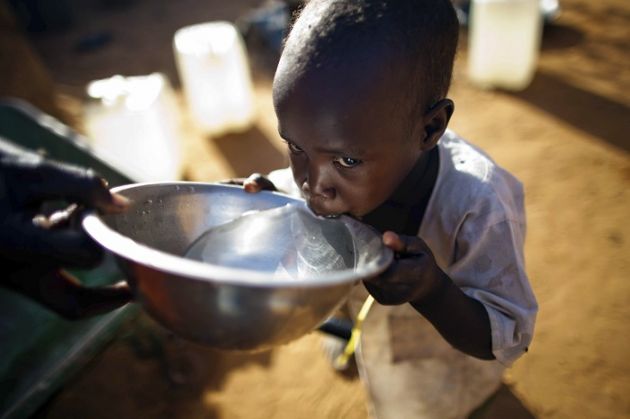Churches agency urges equal access on World Water Day

Equal access to water isn't just a human rights issue but it's necessary to ensure global development and international peace, says the churches-based ACT Alliance on World Water Day.
The numbers tell how many people are affected by the lack of water.
About 1 in 10 people live everyday without access to clean water. That means 738 million people around the world won't be celebrating this year's 20th anniversary of World Water Day.
About a third of the world's population, or 2.5 billion, goes without adequate sanitation services like toilets.
Every year, an estimate six to eight million people die from water-related diseases. Among them, five million are children.
As the statistics rise, peoples without access to clean water develop resentments and conflicts flare.
"Water is a unique resource for which there's no substitute – and the forces that control it wield enormous power, which creates the potential for severe conflicts," says John Nduna, ACT Alliance's General Secretary.
The challenges in providing clean water are different in each country, ranging from climate change, water scarcity, contamination or lack of adequate sanitation systems.
ACT Alliance brings together a network of more than 130 member organizations working together in 140 countries to bring water to the poor and the vulnerable.
In India, where the caste-system drives discrimination based on water resources, ACT is working with the "untouchable" dalits to provide access to water and sanitation. The humanitarian organization has also supported efforts for social inclusion and poverty alleviation.
Members of ACT Alliance have also provided water to Palestinians in Gaza and the West Bank, where water supply has become scarce due the ongoing conflict. ACT is also working to bring water and food supplies to people in drought-ridden Somalia.
In the Global South, ACT-member Lutheran World Relief is building water pumps for communities and educating households to implement solar disinfection, which kills 99.4 percent of fecal coliforms and prevents diarrhea and other diseases.
LWR also works with other ACT members and partners 20 countries in Latin America, Africa and Asia to build low-cost, easily-maintained irrigation systems that provide water for crops as well as for livestock.
"In nearly every corner of the world, ACT is working to deliver clean water and sanitation in an equitable way, especially to the most vulnerable – not only because we firmly believe they deserve the same access as everyone else, but because equity is at the heart of a peaceful and prosperous future for all of us," said Nduna.
The United Nations has declared the theme of this year's World Water Day to be Cooperation. It estimates that at least 148 states share a water basin with a neighboring country, which leads to conflict and competition for resources.
"Water is central to the well-being of people and the planet," said UN secretary general Ban Ki-moon said in his video message for the International Year of Water Cooperation 2013. "We must work together to protect and carefully manage this fragile, finite resource."
In 2010, the UN declared access to safe water and sanitation a human right.
Nduna says that church agencies and other partners play a key role in keeping governments accountable.
"We have to ensure that governments meet their obligations to provide all their citizens with access to clean water, even those they may have discriminated against or marginalized for political gain," he said.
On Friday, national leaders convene at the UN Headquarters in New York to identify and discuss water-related challenges and key areas which in the future will require stronger political support and international cooperation.